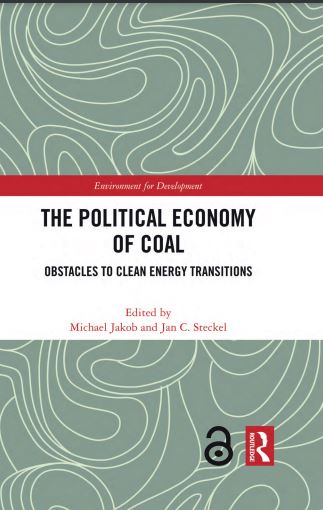The Political Economy of Coal
Editorial: Taylor & Francis
Licencia: Creative Commons (by-nc-nd)
Autor(es): Jakob, Michael
Steckel, Jan C.
This volume provides an overview of the political economy of coal in diverse country contexts. Coal is the largest source of greenhouse gas emissions globally, accounting for about 40 percent of energy-related CO2 emissions. Continued construction of coal-fired power plants could make the climate targets of the Paris Agreement infeasible to achieve. In spite of sharply declining costs for renewable energy sources, many countries still heavily rely on coal to meet their energy demand. The predominance of coal can only be adequately understood in light of the political factors that determine energy policy formulation. To this end, this edited volume assembles a wide variety of case studies exploring the political economy of coal for across the globe. These includes industrial and developing nations, coal importers and exporters as well as countries that are either substantial coal users, are just beginning to ramp up their capacities, or have already initiated a coal phase-out. Importantly, all case studies are structured along a unifying framework that focuses on the central actors driving energy policy formulation, their main objectives as well as the context that determines to what extent they can influence policy making. This large set of comparable studies will permit drawing conclusions regarding key similarities as well as differences driving coal use in different countries. This book will be of great interest to students and scholars of energy, climate change, resource management, and sustainable development. It will also appeal to practitioners and policymakers involved in sustainable development.
Compartir:
Una vez que el usuario haya visto al menos un documento, este fragmento será visible.


